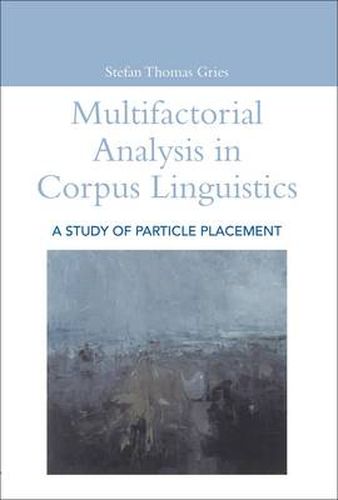Readings Newsletter
Become a Readings Member to make your shopping experience even easier.
Sign in or sign up for free!
You’re not far away from qualifying for FREE standard shipping within Australia
You’ve qualified for FREE standard shipping within Australia
The cart is loading…






This book presents a novel analysis of the word-order alternation of English transitive phrasal verbs (Particle Movement) from a cognitive-functional and psycholinguistic perspective. Its main objective, however, is a methodological one, namely, to demonstrate the superiority of corpus-based, multifactorial and probabilistic approaches to grammatical phenomena over traditional analyses based on acceptability judgements and minimal pair tests. The advantages resulting from the advocated multifactorial approach to Particle Movement are: Particle Movement can be described at a previously unknown level of detail; all determinants ever proposed to govern the alternation can be integrated into a single hypothesis explaining the alternation; constructions can be compared to each other with respect to their degree of prototypicality and similarity; it is possible to actually predict with a high degree of accuracy which of the two word orders native speakers will subconsciously choose in the natural production of speech and text (thereby passing the most rigorous test conceivable); finally, competing hypotheses can be compared in terms of their predictive power.
Apart from these methodological points, the study also addresses the more theoretical and linguistic question of how to explain such results. It is argued that theories of language production that rest on the notion of processing effort are, contrary to some contemporary analysts, not ideally suited to explain such phenomena and that interactive activation models of language production allow for a more elegant interpretation and implementation of the results.
$9.00 standard shipping within Australia
FREE standard shipping within Australia for orders over $100.00
Express & International shipping calculated at checkout
This book presents a novel analysis of the word-order alternation of English transitive phrasal verbs (Particle Movement) from a cognitive-functional and psycholinguistic perspective. Its main objective, however, is a methodological one, namely, to demonstrate the superiority of corpus-based, multifactorial and probabilistic approaches to grammatical phenomena over traditional analyses based on acceptability judgements and minimal pair tests. The advantages resulting from the advocated multifactorial approach to Particle Movement are: Particle Movement can be described at a previously unknown level of detail; all determinants ever proposed to govern the alternation can be integrated into a single hypothesis explaining the alternation; constructions can be compared to each other with respect to their degree of prototypicality and similarity; it is possible to actually predict with a high degree of accuracy which of the two word orders native speakers will subconsciously choose in the natural production of speech and text (thereby passing the most rigorous test conceivable); finally, competing hypotheses can be compared in terms of their predictive power.
Apart from these methodological points, the study also addresses the more theoretical and linguistic question of how to explain such results. It is argued that theories of language production that rest on the notion of processing effort are, contrary to some contemporary analysts, not ideally suited to explain such phenomena and that interactive activation models of language production allow for a more elegant interpretation and implementation of the results.